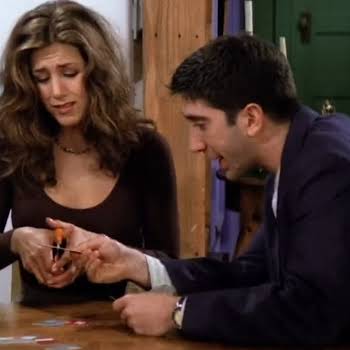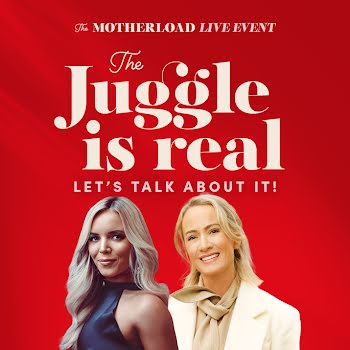The 3 most common types of situationship, according to a sex and relationships expert
By Sarah Gill
03rd Dec 2023
03rd Dec 2023
Gird your loins, because apparently the closer we get to ‘cuffing season’, the more likely we are to fall into ephemeral situationships to keep us warm through the winter…
Situationships. Delusionships. Hesidating. Ghosting. Gaslighting. Breadcrumbing. Someone please gouge my eyes out and put my brain in a nice warm bowl of saline solution so that I can experience a moment’s peace, for the love of god.
I remember when I was in school, the term ‘tipping’ took on the same gravitas as engagement. If you were tipping with someone, it essentially meant that you consistently had someone to kiss at discos and someone to return your row of ‘x’s and ‘ily’s every evening. There was a certain implication of exclusivity associated with ‘tipping’ that made you nod sagely at your friends as you applied yet another layer of Sally Hansen, saying things like ‘Yeah… we’ll probably be boyfriend/girlfriend soon’ or ‘We’re basically going out, so I should probably that thinking about what to get him for Christmas.’
Oh, how ahead of our time we were. A situationship, for those who may be blissfully unaware, is a romantic or sexual relationship that is yet to be defined. They’re noncommittal, boundaries are rarely set, and—to put it bluntly—there is more often than not a disparity in the level of feelings involved. It’s flirting with the idea of being in a relationship, without the dedication required to make it so.
The next appellation we’ll be discussing today is ‘cuffing season’, which refers to the brief, transitory period in the lead up to Christmas where our cold hands itch to be held, twinkling lights taunt you for being alone, and romantic comedies seem to parody a life unlived.
So, naturally, in order to ward off the dreaded ‘are you seeing anyone?’ spiel from distant relatives and old friends over the festive period, people are going hell for leather on dating apps. According to new stats from Bumble, 44% of Irish daters are clearly stating that they are ‘looking for a relationship’ on their profiles.
Dr Caroline West, Bumble’s Sex and Relationships Expert, explains that people often feel swayed by seasonality when it comes to dating: “Sometimes our views on dating are influenced by the cultural zeitgeist. A great example is how Christmas rom coms make us think we should couple up in winter as we see many portrayals of wholesome holiday romances. Even though that is often the case, ultimately, you can find a spark at any time of year.”
To dig into this a little further, we caught up with Caroline to get a professional opinion on situationships and cuffing season…

What are the three most common types of ‘situationship’ you can find yourself in?
The Safety Net Situationship
“Lots of people feel the pressure to ‘couple up’ during Cuffing Season which can lead to them reigniting familiar, and comfortable, old flames. Certain high-profile celebrities have already kicked this off, showcasing a new Cuffing Season trend of ‘safety-netting’, a Bumble coined term about rekindling old flames to provide comfort. This can be particularly common when we head home for the holidays and bump into previous partners.
Although this is a situationship that can happen during Cuffing Season and beyond, Bumble’s recent app data shows that over half (58%) of single people are more open to who they date beyond their usual ‘type’ – meaning there is a desire for more exploratory dating. There’s no need to fall back on your ‘safety net’, just because it’s Cuffing Season. It can be empowering to use this time to prioritise yourself, so consider taking yourself on some solo dates as a treat.”
The Promising Situationship
“Dating someone during colder months can be fun as there are lots of natural, romantic moments to meet up with your date — from Halloween parties to Christmas market dates — meaning more opportunity to cosy up and get to know them better. Spending quality time together doing activities is a great way to build a solid foundation for long-term relationships.
Many people don’t start their Cuffing Season situationship thinking it’s going to be long term, but sometimes… it just ends up that way! It’s important to remember that just because a relationship started in Cuffing Season, doesn’t mean it needs to end in it too.
If you feel your emotions spilling over into the full 365 days of the year, then it’s time to put your cards on the table and be upfront with the person you’re dating. Bumble data shows that being honest and upfront is the most important thing in a relationship for the overwhelming majority (84%) of singles, so the standard has been set.”
The Shielding Situationship
“Bumble’s research shows that during the festive season, more than 1 in 3 (38%) Gen Z and millennials say that friends and family have made them feel bad for not bringing a significant other to events*. This pressure can lead to people entering a situationship just so they don’t feel embarrassed in front of family or friends, otherwise known as ‘shielding’ according to Bumble.
My advice in this situation would be to take your time. Simply let your family or friends know that you are intentionally dating, taking your time to find someone that aligns with your values rather than rushing into a relationship.”
What is it about the festive season and winter months that makes people more inclined to couple up? Is it familiar pressure, or a seasonal urge for cosy comfort with a romantic partner?
We can feel the pressure to be coupled up all around us in the winter months – TV ads show families and loved ones gathered for parties and dinners, and romantic Christmas movies start appearing on our screens. Families can ask questions about your dating life, leaving us feeling like we have to find someone. We are also indoors more, and if we are snuggled up all cosy under blankets, it’s natural to think about having someone to share those cuddles and duvet days. But the good news is that you don’t have to give in to this pressure – date on your terms and your own timeline, not anyone else’s.
Do you have any advice on how people can avoid feeling pressured to get into a relationship at this time of year?
If you are going to be around family or friends that you know have a habit of asking about your romantic life, having an answer prepared will help you navigate this awkward situation. This can look like saying ‘Oh I haven’t found the right person yet, but I’m having fun looking’, or ‘I’m very busy with work so I’m waiting until the new year’, or something else that feels right for you. Having a pre-prepared line will help you feel more confident, and then you can change the subject, or get up to check on the cooking. They will have moved on to a different subject by the time you come back.
The term ‘cuffing season’ implies an expiration date — are ‘situationships’ destined to fizzle out come New Year?
Not always! If you have decided that there could be a longer term relationship, talk to each other. Be honest with your partner and say that you feel there is potential for more between you. Bumble data shows that being honest and upfront is the most important thing in a relationship for the overwhelming majority (84%) of singles. If the other person doesn’t feel the same way, it’s better to know sooner rather than later so you can make a decision to carry on with the situationship or end it to look for someone on the same page as you. The more we practise communication, the more we can stay true to ourselves and find the right partner for us.
What’s some advice for people trying to transition out of situationships and into full on relationships?
Think about what kind of relationship you are looking for, and reflect on if your situationship person is the right person to explore that with. Be prepared for them to not want more however, as you both understood that a situationship is a casual relationship. They may not be on the same page as you or in a different phase of life. That isn’t necessarily any reflection on you, so try to not take it personally if they did not want more.
What are your thoughts on ‘delusionships’, a relationship buzzword that was trending on TikTok over summer?
Delusionships can be a fun way to enjoy those flirty feelings of the first flushes of lust, but if left too long they can build up unrealistic expectations of another person that they can’t possibly hope to meet in real life. Enjoy the fantasising, but remember that in real life humans have flaws, may not like us back, or not be on the same page as us, so be prepared for the real world to put a dampner on our delusions. They can be a way to safely explore our feelings and think about what we want in real life, so they have their uses.
This article was originally published in November 2023.























